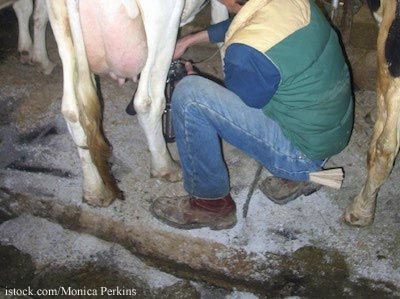Maryland House Bill 3, the legislation that would have allowed individual cow-share or herd-share in that state, making raw milk legal, is dead. The bill was stuck in committee after a report by the Department of Legislative Services found that the bill would double raw-milk outbreaks and increase the number of individual illnesses from raw milk.
 That study showed that making raw, or unpasteurized, milk legal would increase government costs in that state by at least $66,000 per year, up to $95,000 per year in four years. That is independent of the costs of illness, medical bills, and lost wages.
That study showed that making raw, or unpasteurized, milk legal would increase government costs in that state by at least $66,000 per year, up to $95,000 per year in four years. That is independent of the costs of illness, medical bills, and lost wages.
Dr. Katherine Feldman, of the Maryland Health Department’s infectious diseases bureau, said that “pasteurization if the cornerstone of milk safety and a triumph of public health.” States that allow raw milk sales have twice as many outbreaks of milk-linked diseases. And a study conducted in Pennsylvania in 2009 found that 5% to 20% of raw milk is contaminated with bacteria. In addition, that study found that 36% of dairy farmers who responded to a survey did not think that Salmonella bacteria caused disease in people, while 81%, 88%, and 91% of farmers indicated that “Listeria, Cryptosporidium, and Campylobacter species, respectively, were not associated with disease in humans.”
Laurie Bucher, head of the Maryland Center for Milk Control said in a hearing about the bill in January, “no matter how careful a farmer is, it is impossible to ensure pathogens will be absent from milk.” And, unfortunately, the main victims of a foodborne illness outbreak linked to milk are children. At least 75% of the illnesses from raw milk affect those under the age of 18. In fact, at least one of the three Campylobacter outbreaks in 20 months linked to The Family Cow dairy in Pennsylvania sickened children in Maryland.
Organizations opposing the sale of raw milk include The FDA, USDA, CDC, the American Academy of Pediatrics, and the American Medical Association.





This is ridiculous. Milk has to be pasteurized. Like was said above, pasteurization is the cornerstone of milk safety.